Transcranial Magnetic Stimulation (TMS) therapy is a groundbreaking approach in treating mental health conditions like depression and anxiety. Dr. Clayton L. Allison, a leading expert trained at the Mayo Clinic and UT Southwestern, describes TMS as “a non-invasive procedure that uses magnetic fields to stimulate nerve cells in the brain, specifically targeting areas involved in mood regulation.”
Exploring the Science of TMS: Its Impact on the Brain
The science behind TMS lies in its ability to focus on certain brain regions. Dr. Allison explains, “TMS uses magnetic coils placed near the head to generate targeted electrical currents. These currents stimulate brain cells in areas that are typically underactive in depression, enhancing their activity and improving mood regulation.”
Transcranial Magnetic Stimulation Demystified: The Science and Benefits Explained
TMS stands out for its targeted approach and minimal side effects compared to traditional medication. “Unlike systemic medications, TMS specifically targets brain regions involved in mood disorders, reducing the likelihood of widespread side effects,” highlights Brittany Huckaby, PHNP, with extensive experience in pediatric cardiac intensive care nursing.
The Breakthrough of TMS: Scientific Insights into its Therapeutic Effects
TMS has shown remarkable results in treating depression, especially in patients who haven’t responded to other treatments. “Clinical trials have consistently demonstrated the effectiveness of TMS in improving depressive symptoms,” Dr. Allison notes, emphasizing the growing body of research supporting TMS.
How Does TMS Work? A Detailed Guide to the Science Behind the Treatment
The TMS therapy procedure is simple yet effective. Patients sit comfortably while a technician positions the magnetic coil. Treatments typically last 30-60 minutes, with patients able to resume daily activities immediately afterward. “The convenience and non-invasive nature of TMS make it an appealing option for many,” adds Huckaby.
TMS Therapy Uncovered: The Scientific Principles Driving Mental Health Treatment
In terms of effectiveness, TMS has been a game-changer for many. “We’ve seen significant improvements in mood and overall mental health in our patients undergoing TMS,” says Dr. Allison, reflecting on the positive outcomes observed in his practice.
Neuroscience of TMS: Understanding its Role in Treating Depression and Anxiety
Delving into the neuroscience, TMS stimulates underactive brain areas, potentially leading to long-term functional changes. “TMS isn’t just a temporary fix; it can lead to lasting neural adaptations,” Dr. Allison points out.
From Theory to Therapy: The Scientific Journey of TMS in Mental Health Care
The transition of TMS from a theoretical concept to a practical therapy is a testament to its efficacy. “The evolution of TMS in mental health care is a remarkable story of scientific advancement,” Huckaby remarks.
Decoding TMS: A Closer Look at the Science Behind Its Healing Power
Considering the financial aspect, the cost of TMS can vary. However, its increasing recognition and insurance coverage make it more accessible. “The growing acceptance of TMS in the medical community is reflected in the expanding insurance coverage for the treatment,” notes Huckaby.
The Revolutionary Science of TMS: How It’s Changing Mental Health Treatment
TMS represents a significant advancement in mental health treatment. “TMS offers new hope for those who haven’t found relief with traditional treatments,” Dr. Allison concludes.
NorTex Psychiatry, serving Allen, McKinney, Frisco, and Dallas, Texas, is at the forefront of providing innovative mental health treatments, including TMS therapy. If you or someone you know is considering TMS therapy for depression or anxiety, reach out to us at NorTex Psychiatry for more information and support in your journey toward mental wellness.







